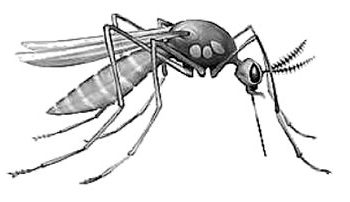Water, Mosquito Control, Native Plants
Insight from Wells Branch Wild Conservancy
 As the temperature rises during the hot Texas summer months, gardeners know that it becomes a challenge to keep the plants alive while conserving water. The presence of mosquitoes in our yards and parks is another challenge that faces everyone. Fortunately, native plants offer a great solution. Native plants are adapted to the local climate which make them ideal for hot summers and mild winters. Once established, they are drought tolerant due to deep roots that allow them to withstand longer periods without water, thus reducing the need for constant irrigation. Examples include yuccas, salvias, agaves, mistflowers, and turk’s caps.
As the temperature rises during the hot Texas summer months, gardeners know that it becomes a challenge to keep the plants alive while conserving water. The presence of mosquitoes in our yards and parks is another challenge that faces everyone. Fortunately, native plants offer a great solution. Native plants are adapted to the local climate which make them ideal for hot summers and mild winters. Once established, they are drought tolerant due to deep roots that allow them to withstand longer periods without water, thus reducing the need for constant irrigation. Examples include yuccas, salvias, agaves, mistflowers, and turk’s caps.
In addition to using native plants the following options are available to save water. 1) Use drip irrigation such as soaker hoses instead of sprinklers to minimize evaporation during irrigation. 2) Harvest rainwater from the roof by collecting it in barrels and use it for watering. 3) Apply organic mulch around plants to retain moisture and control weeds. 4) If you have an irrigation system, check for leaks and only irrigate according to the schedule determined by WB’s MUD.
Native plants can also help with mosquito control by acting as mosquito-repellents. Plants to select include lantana, lavender, bee balm, and sage. Non-native plants to consider include rosemary, garlic, marigold, citronella grass, lemongrass, basil, catnip, eucalyptus, and mint. Due to climate change mosquitoes are appearing earlier in the spring and even breeding into the winter in Texas. We want to prevent mosquito bites as these insects may carry a variety of diseases such as the West Nile fever.
Other natural methods to control mosquitoes include: 1) Remove standing water and regularly clean out features that require water, such as bird baths to eliminate breeding grounds. 2) Cover water storage containers or use mesh smaller than a mosquito. 3) Consider installing lightning that mosquitoes are not attracted to such as LED in outdoor spaces. 4) Sprinkle used coffee grounds on areas where there had been drainage problems to deprive eggs of oxygen. 5) Attract natural predators such as birds, frogs, and dragon flies by providing them habitats. 6) Use an outdoor fan on the patio or deck as mosquitoes are not very strong flyers. 7) Use mosquito dunks in a bucket of water to make a mosquito trap to kill off mosquito larvae instead of fogging, because fogging also kills other insects.
For personal protection, use insect repellent, wear light loose fitted clothes with long sleeves and long pants.